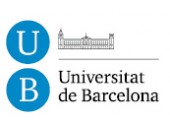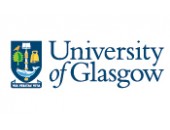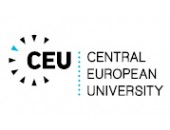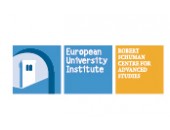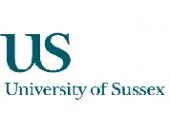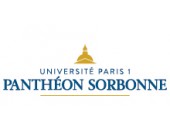Universitat de Barcelona (UB)
The Universitat de Barcelona (UB) (coordinator of the project) was founded in 1450 and is ranked the first Spanish university in scientific quality and productivity. Degrees are offered in 73 different areas of teaching with numerous postgraduate and doctorate programs as well as continuing education courses.
The UB team also counts with the collaboration of Peter Wagner, Jordi Alomar and Juan Díez Medrano.
Arturo Rodriguez Morato
Arturo Rodriguez Morato is Professor of Sociology and current Director of the CECUPS (Center for the Study of Culture, Politics and Society). Former Vice President for Research of the International Sociological Association (2006-2010) and Former President of its Research Committee on Sociology of the Arts (1998-2002). He was Director of the First ISA Forum of Sociology in 2008. He has been Visiting Scholar at the EHESS and the Maison des Sciences de l’Homme in Paris, at the New School for Social Research in New York, and at the University of Cambridge (UK). He has been Principal Investigator of several funded research projects and has published extensively on cultural policy, cultural occupations, urban culture and cultural sociology. Among his recent publications highlights: “The Culture Society: A Heuristic for Analyzing Cultural Change in the Global Age” (in Sociology Today, A. Sales, ed., Sage, 2012) as well as different articles in Revista de Investigaciones Políticas y Sociológicas (2012: 11, 3), European Urban and Regional Studies (2013: online first), among others. He is currently Coordinator of the project CulturalBase funded by the European Commission (2015-17).
Matías I. Zarlenga
Matías I. Zarlenga is PhD in Sociology from Universtiy of Barcelna (UB) and graduated in Sociology from the University of Buenos Aires (UBA). He also has an MA in Art History from the University of San Martín (UNSAM) as well as in Visual Arts and Education from University of Barcelona. He participated as a researcher in various accredited projects related to the sociology of culture in the Gino Germani Research Institute (IIGG) at University of Buenos Aires. He has taught different subjects as “Sociology of Culture I” at University of Buenos Aires; and “Contemporary Culture” and “History of Culture I” at the University of Tres de Febrero. He is currently post-doctoral researcher at the CONICET (Argentina) and participates at the European Project Cultural Base. His research interests include Sociological Theory, Sociology of Art and Culture and Urban Sociology, focused on the analysis of cultural creativity processes in urban context. His publications include papers in local and international journals and book chapters on issues related to art and education, visual culture, cultural creativity and cultural districts.
Rocío Nogales
Rocío Nogales graduated in Communications (BA. University of Seville, Spain) and earned a Masters in Art Management (Carnegie Mellon University, US), a Masters in Art History (Univ. of Pittsburgh, US) and a Masters in Management Science (Univ. of Liege, Belgium). Since 2004 she is the director of EMES International Research Network, in charge of the coordination of international research projects, international research conferences, PhD Summer Schools and international partnerships. She has done consultancy and advisory work for international organizations like OECD and UNDP on the resource mobilization of social enterprises, on social enterprises in emerging countries and the contribution of social enterprises to employment creation. She is now completing her PhD at UB on social innovation and the scaling-up strategies operating in cultural and artistic social enterprises and recently helped set up SMartIB in Spain. In 2010 she launched Eyephoneography, a project around mobile photography combining artistic and social goals and MADRID_CREacción, which proposes hands-on experiences with artists and cultural organizations active in Madrid to foreign universities with study-abroad programs.
University of Glasgow
The School of Culture and creative arts is the leading research School in the University of Glasgow, excelling in critical, historical and practice-based studies in Art History, Theatre, Film and Television, and Music.
Philip Schlesinger
Professor Philip Schlesinger is the University of Glasgow’s inaugural Chair in Cultural Policy. He is a Deputy Director of CREATe, the Research Councils UK Centre for Copyright and New Business Models in the Creative Economy and a Visiting Professor of Media and Communications at the London School of Economics and Political Science. His most recent co-authored books are Curators of Cultural Enterprise (Palgrave Macmillan, 2015) and The Rise and Fall of the UK Film Council (Edinburgh University Press, 2015) and he is currently working on a CREATe-funded study of contemporary British film policy. He is a Member of UK communications regulator Ofcom’s Content Board and an editorial board member of the leading international journal, Media, Culture & Society. He is a Fellow of the Royal Society of Edinburgh (Scotland’s national academy), the UK’s Academy of Social Sciences, and the Royal Society of Arts, and has held visiting chairs at several universities, including CELSA-Sorbonne in Paris, IEP of Toulouse, Computense of Madrid, Oslo, LUISS in Rome, and Salamanca, and has been a fellow at the EUI in Florence and visiting scholar at the MSH in Paris.
Central European University
The CEU offers a uniquely international atmosphere of academic excellence, critical reflection, and social engagement. CEU stresses both academic excellence and public policy relevance of its teaching and research.
Jean-Louis Fabiani
Jean-Louis Fabiani is Professor of Sociology and Social Anthropology at the Central European University in Budapest. Born in 1951 in Algiers (Algeria), he studied at the Ecole normale supérieure. And at the EHESS, where he received his Phd in 1980. From 1980 to 1988 he was agrégé-répétiteur at the Department of Social Sciences at the Ecole normale supérieure (Paris). In 1988 he moved to the administration of culture, being appointed as Director of Cultural Affairs in Corsica. He went back to the academic world in 1991 when he joined the EHESS. During the academic year 2005-2006 he was a fellow of the Wissenschaftskolleg in Berlin. He is the author of ten personal books, among them Les Philosophes de la République (1988), Lire en prison (1995, l’Education populaire et le théâtre. Le festival d’Avignon en action (2008) Qu’est-ce qu’un pLhilosophe francais ? (2010) and La sociologie comme elle s’écrit (2015). He was the chairman of the board of the Mediterranean Youth Orchestra from 1998 to 2014.
Nasser Suleiman Gabryel
orn in Marseille, Nasser Suleiman Gabryel has received his PhD. in political science from Sciences-Po Aix-en-Provence in 2011. He holds a Masters degree in History and one in Philosophy. His work is inspired by critical theory and he focuses on capitalism, imperialism, identity politics, post-colonial theories and European islam.
Juli Székely
Juli Székely is a PhD Candidate of Sociology at the Central European University (CEU) in Budapest. She obtained her Master’s degrees in Hungarian Literature and Art History at the Eötvös Loránd University in Budapest, and later in Sociology at CEU. Her research interests are in the relationship of art and city, with a special emphasis on public art, material heritage and memory politics in urban space. In her dissertation she compares the memory politics of Berlin and Budapest, focusing on the genre of public works of art. She is a founding member of the research organization and international network TACT (https://tactcity.wordpress.
Global Governance Programme
The Robert Schuman Centre for Advanced Studies (RSCAS) (including the Global Governance Programme), at the European University Institute (EUI), was set up in 1992 to develop interdisciplinary and comparative research and to promote wor0k on the major issues facing the process of integration and European society.
Anna Triandafyllidou
Professor Anna Triandafyllidou directs the Cultural Pluralism Research Area in the Global Governance Programme of the European University Institute (Robert Schuman Centre for Advanced Studies), in Florence, Italy. She is also Visiting Professor at the College of Europe in Bruges, and a member of the EU Spinelli Group. Her main areas of research and expertise are cultural diversity, nationalism, migrants and minorities, the media and European integration. Amongst other things, she is also a member of the International Advisory Board of Nations and Nationalism, and a member of the Editorial Board of Ethnicities. She is the Editor in Chief of the Journal of Immigrant and Refugee Studies. Her recent books include European Multiculturalism(s) (with T. Modood and N. Meer, Edinburgh UP, 2011), The Greek Crisis and Modernity in Europe (with R. Gropas and H. Kouki, eds, Palgrave, 2013); and What is Europe? (co-authored with R. Gropas, Palgrave, 2015).
Sabrina Marchetti
Sabrina Marchetti is Research Associate in the Cultural Pluralism Research Area in the Global Governance Programme of the European University Institute (Robert Schuman Centre for Advanced Studies), in Florence, Italy. She received her PhD in Gender & Ethnicity from the Institute for History and Culture of Utrecht University in 2010. Marchetti has mainly specialised the study of inequalities, labour and migration, at the intersection with postcolonial and feminist theories, with a specific focus on the case of domestic workers in several countries. She has published the books Black Girls. Migrant Domestic Worker and Colonial Legacies (Brill, 2014) and, in Italian, Le ragazze di Asmara. Lavoro domestico e migrazione postcoloniale (Ediesse, 2011). She has co-edited with Andrea Brazzoduro and Enrica Capussotti the special issue “Made in Italy. Identità in migrazione” of the journal Zapruder.
Hara Kouki
Hara Kouki is Research Associate in the Cultural Pluralism Research Area in the Global Governance Programme of the European University Institute (Robert Schuman Centre for Advanced Studies), in Florence, Italy. She received her PhD in the history of human rights from the Law Department at Birkbeck College in London in 2015. By historicizing collective action, inequality and identity formation in post-war Europe, Hara is interested in reading contemporary developments as the ‘history of the present’. She has published the books Protest Beyond Borders, Transnational Approaches to Social Mobilization in Europe since 1945 (with E. Romanos, Berghahn Books, eds, 2011), The Greek Crisis and Modernity in Europe (with A. Triandafyllidou and R. Gropas, eds, Palgrave, 2013) and Movement Parties in Times of Crisis: Syriza, Podemos and 5Star Parties (with D. della Porta, J. Fernandez, L. Mosca, eds, 2016, Polity Press), as well as the special issue ‘Forms of Intolerance in Europe today’(with Zsuzsa Vidra, eds, 2015) in the Journal of Immigration and Refugee Studies.
University of Sussex
The University of Sussex is a leading research based university. Sussex is ranked 5th in the UK in terms of the impact of its research and has six main research themes: Digital and Social Media, Culture and Heritage, Citizenship and Democratization, Global Transformation, Environment and Health, and Mind and Brain.
Gerard Delanty
Gerard Delanty is Professor of Sociology and Social & Political Thought, University of Sussex. He was previously Professor of Sociology, University of Liverpool. He has held visiting professorships at Deakin University Melbourne and Doshisha University, Kyoto, York University Toronto, and the University of Barcelona. His research is in general sociology and social theory, and specifically concerns topics relating to globalization and the political and historical sociology of modernity. He os the Editor of the European Journal of Social Theory. His most recent books are Formations of European Modernity: A Historical and Political Sociology of Europe (Palgrave 2013) and The Cosmopolitan Imagination (Cambridge University Press 2009).
Jasper Chalcraft
Jasper Chalcraft is currently Research Fellow in the Department of Sociology at Sussex University. His work on heritage began with fieldwork at three UNESCO World Heritage rock art sites in Italy, Libya and Tanzania. He has subsequently worked on issues of culture and identity as a researcher on the EU-funded Eurofestival project, where he focused on the role of music festivals in helping create a cultural public sphere. Prior to his involvement with Cultural Base he was exploring heritage’s potential in helping to rebuild post-conflict societies, as project manager for the University of Leicester’s Cultural Heritage and Peacebuilding project. Encompassing all of the above is an interest in trying to understand what ‘universal’ heritage means for broader transnational identities and local realities. These are issues he explores in a recent book co-edited with Camila del Mármol & Marc Morell “The Making of Heritage: seduction and disenchantment” (Routledge 2015).
University Paris
HiCSA is a federal Unity created by the University Paris 1 with the aim of consolidate the studies in the history of art, focusing in transversal axes related to creative process, art and society,heritage, art and territory, among others.
Dominique Poulot
Dominique Poulot is Professor of History at University Paris 1 Pantheon-Sorbonne. His research focuses on history and politics of heritage and museums.
He has published several books on topics of heritage and memory, notably Musée, Nation, Patrimoine (Gallimard, 1997), a history of French museums (La Découverte, 2005), and of the idea of patrimony in Europe (PUF, 2006). He has published widely in journals and edited collections, including The Realms of Memory (Chicago), National Museums and Nation-building in Europe 1750-2010 (Routlege). He was partner of EUNAMUS, in the framework of the Seventh Framework Programme 2007-2013 about National Museums in Europe 1750-2012, and of the program Borders of Heritage at the EHESS, 2011-2014.
Some of his most relevant publications are Musée, nation, patrimoine, 1789-1815 (1997) Gallimard: Paris; Musée et muséologie, (2005) La Découverte: Paris; Une histoire du patrimoine en Occident (2006) PUF: Paris.
Isidora Stanković
Isidora Stanković is a PhD Candidate of Art History (specialization: Heritage Studies and Museology) in the joint supervision between the Faculty of Philosophy, University of Belgrade and the Doctoral School of Art History, University Paris 1 Panthéon-Sorbonne. She finished her Bachelor studies of Art History and obtained her Master’s degree within the Seminar for Museology and Heritology founded at the Department of Art History of the Faculty of Philosophy in Belgrade. For several years she has been enrolled as a teaching assistant in the courses of the aforementioned Seminar. Areas of her research include the problems of cultural heritage, lieux de mémoire, collective and cultural memory. She is a collaborator of different professional and scientific organizations related to the questions of preservation and promotion of cultural heritage – the Center for Museology and Heritology of the Faculty of Philosophy in Belgrade and Europa Nostra Serbia.
Interarts
Interarts is a not-for-profit organisation with international projection to: support the design of cultural policies; contribute to the processes of human development through the cultural sector; and facilitate the transfer of knowledge and information in the field of culture.
Mercedes Giovinazzo Marín
Mercedes Giovinazzo Marín holds a degree (Laurea) in Archaeology from the Università degli Studi “La Sapienza”, Rome, Italy and a Master’s degree in arts management from the École Supérieure de Commerce de Dijon, France. Since January 2005 she is director of Interarts (www.interarts.net) in Barcelona, a non-governmental organization specialized in international cultural co-operation. Between 2008 and 2011 she chaired the “Access to culture” Platform set up by the Education and Culture Directorate General of the European Commission in the framework of the structured dialogue process with the non-governmental sector foreseen by the “European Agenda for Culture”. Since October 2008, Chair of the Executive Committee of Culture Action Europe, the European political platform for the arts and culture (http://www.cultureactioneurope.org). She teaches regularly in different postgraduate arts management courses on issues related with international cultural cooperation. Since 2013, she’s also a Board Member of Teatro di Roma (http://www.teatrodiroma.net/).
Antonio Gucciardo
Antonio Gucciardo holds a PhD in Tourism Sciences from the Faculty of Economics of the Università di Palermo, Italy, with a specialization in the economy of culture and cultural marketing as well as in quantitative and qualitative research. He is member of the commission for the adaptation to the European Space for Higher Education of the “European Master of Professional specialization, Inter-Mediterranean Mediation” (MIM) (Universidad Autónoma, Barcelona). He has previously worked in the information department of the Universal Forum of Cultures, Barcelona 2004. In his current position as the general manager at Interarts he is in charge of the financial and human resource management of the organization. He has also overseen several research studies and has coordinated, as representative of the lead partner and with the overall responsibility for the project’s implementation, several projects in the area of international cooperation towards development, such as the “FOMECC” projects (Colombia, Honduras, Peru and Senegal – 2006-2013). He is currently director of the European Union Culture for All – Phase III project for the promotion, development and internationalization of the cultural sector in Kosovo.
Sandra Bautista
Sandra Bautista holds a degree in Art History (specialization in contemporary art) from the Universidad Complutense de Madrid, Spain, and a Master’s degree in cultural management (specialization on Cultural Industries and Sectors) from the Universitat Oberta de Catalunya (Barcelona, Spain). She is project assistant at Interarts, with responsibilities for several projects, such as “DECIDES ESPAÑA. For a more equitable access to and exercise of Sexual and Reproductive Rights in Spain” (www.decides.pro/decides-espana) and CulturalBase (www.culturalbase.eu), including planning, implementing and monitoring activities and events involving national and international participants (meetings, conferences, seminars, workshops, awareness-raising activities, etc.) and developing online tools, communication with stakeholders, coordination of logistics, etc.

